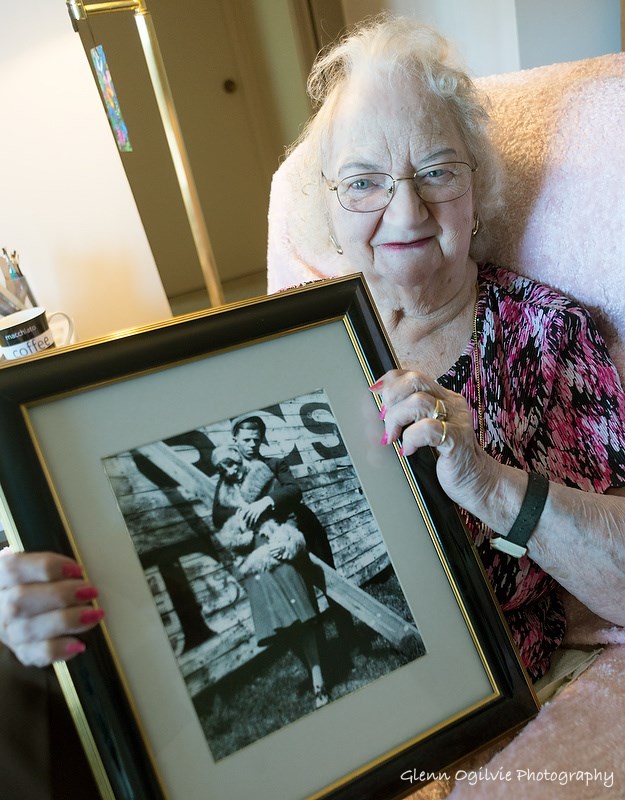Helen Barnes arrived in the world on June 12, 1914, two weeks before the outbreak of the First World War, in the village of Warwick, the youngest daughter of a carpenter.
Like Sarnia, she is celebrating her centenary, with a story every bit as compelling.
At the age of four Helen contracted meningitis, an often fatal and usually crippling disease.
But a First Nations elder concocted a salve for her parents made from wild herbs. Their doctor scoffed, telling Helen’s mother not to waste her time, but she remembers her legs being swabbed in strong medicine and wrapped in towels soaked in turpentine and hot water.
“The old Indian woman said I’d be able to walk again, and my mother told the doctor, ‘Indians know a lot of things that we don’t,’” Grant said. “And she was right.”
It was two years before the little girl was mobile again. But once she was the furniture was loaded on a hay wagon and the family trundled to Sarnia, where Helen was enrolled in Devine Street School, the city’s newest and largest.
“I loved it,” she told The Journal during a visit to her Sarnia home. “I only went for four years, but I loved to read, and I taught myself.”
The Barnes family home was on South Brock Street. Dad ran horses when he wasn’t building, mom was a cook at the McFee Hotel, and an uncle opened a boarding house at Confederation and Christina streets.
“There was no pavement in that part of the city at that time. They had paved Confederation but they did a bad job. My grandfather said it wasn’t good on his horse’s feet,” she recalled.
Her Uncle Bob returned from the French battlefields a changed man. Evidently suffering from “shell shock,” or what’s known today as post-traumatic stress disorder, he would socialize with the family but lived alone to protect them from his uncontrollable rages and outbursts.
At the age of 18, Helen married Ken Grant, a dashing jack-of-all-trades. It was 1932 and the country was in the grip of the Great Depression. It was a “miserable” time, she said.
But Ken was a good husband who could and would do just about anything to put food on the table. Bread cost an outrageous 10 cents a loaf, and hamburger three pounds for a quarter, but unlike their friends the Grants never went on government relief.
Ken was by turns a beekeeper and a miner, an ice-cutter on the river and a carnival bear-keeper. As a carpenter he built 19 homes in Sarnia, most of which still stand, and as a mechanic he ran a garage on Front Street near George.
He also captained a local yacht, owned by the Vendome Hotel and berthed at the Sarnia Yacht Club.
“My husband and I, we liked our beer and we’d go out on Saturday night to the Vendome or the Morden Hotel. Oh, we had many good times,” she said.
When times were really tough the couple scoured rural Lambton in search of rags and scrap iron, filling the back of a converted pick-up and selling it to the scrap yard.
“Ken didn’t believe in a woman working. He wanted to come home and have his meals ready. But I didn’t mind. I loved to cook and keep a home,” she said.
In the 1950s the couple ran an antique store on the Bay of Quinte but returned to Sarnia and family when Ken suffered a heart attack. Helen lost her husband in the 1980s.
Sarnia has undergone many changes during her lifetime, some good, some bad, she said. But she believes today’s young people are better educated and have more opportunities then ever before.
As she prepares to celebrate her 100th birthday on Saturday, Helen Grant says she’s a happy woman.
“It’s a good life. I have good friends and a special niece. I have the VON girls come every day and they’re wonderful. And I’m always making new friends.”
- George Mathewson
